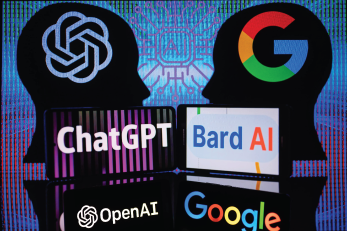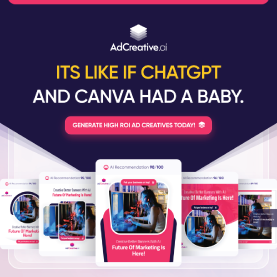Essential Features of an AI Marketing Dashboard
When it comes to choosing the right AI-powered marketing dashboard, it’s easy to feel overwhelmed by the sheer number of options out there. Trust me, I’ve been there—spending hours comparing tools, trying out free trials, and even regretting a purchase or two. Here’s what I’ve learned: it all comes down to finding a dashboard that aligns with your goals and simplifies your work. Let’s break it down.
1. Customizable Metrics and Reports
One of my early mistakes was picking a dashboard that seemed impressive but locked me into pre-set metrics that didn’t align with my business goals. Imagine trying to track your audience engagement, only to realize the tool’s default focus is on website traffic—it’s frustrating! Look for a platform that allows you to customize your dashboards. You need something flexible, where you can zero in on the metrics that actually matter, whether it’s ROI by campaign, customer acquisition cost, or engagement rates.
2. Real-Time Data Insights
Here’s the deal: outdated data is almost as bad as no data. I learned this the hard way during a holiday campaign. My dashboard at the time had a 24-hour data refresh, and by the time I adjusted my strategy, I had already lost valuable traction. Today’s top AI dashboards update in real time, giving you up-to-the-minute insights so you can tweak campaigns on the fly. Trust me, the ability to pivot instantly is a game-changer.
3. Predictive Analytics
This is where AI really flexes its muscles. Predictive analytics uses historical data to forecast future outcomes, like which audience segments are most likely to convert or what ad copy will perform best. Think of it as having a crystal ball for your marketing. When I started leveraging predictive insights, I finally stopped throwing spaghetti at the wall and started making decisions backed by solid data. It’s a tool that pays for itself.
4. Integration with Existing Tools
Here’s a rookie mistake I made when I was just starting out: I bought a shiny new dashboard, only to realize it didn’t play nicely with my email marketing software. The result? Manual data exports and wasted time. Avoid this by ensuring the dashboard integrates seamlessly with the tools you’re already using, like Google Analytics, Facebook Ads, or your CRM.
5. User-Friendly Interface
I don’t care how powerful a tool is—if it feels like solving a Rubik’s cube every time you log in, it’s not worth your time. A good dashboard should be intuitive, even if you’re not a data whiz. Bonus points if it offers pre-built templates for common use cases like campaign tracking or audience segmentation.
Benefits of Using an AI Marketing Dashboard
When you nail down the right dashboard, the benefits go far beyond convenience. You’ll start to notice tangible improvements in how you approach marketing.
- Efficiency: Automating data collection and analysis frees up hours every week. For me, that meant more time focusing on strategy rather than crunching numbers.
- Improved ROI: With real-time tracking and predictive analytics, you can invest in what’s working and cut out what’s not—maximizing every dollar spent.
- Enhanced Decision-Making: By centralizing all your data, you gain a clearer, more holistic view of your campaigns. No more siloed reports or second-guessing.
Choosing the right AI marketing dashboard isn’t just about finding a fancy tool—it’s about empowering yourself to make smarter decisions, faster. Start with these must-have features, and you’ll be well on your way to transforming your marketing strategy.
Key Features to Look for in AI Marketing Dashboard Software
Selecting the perfect AI marketing dashboard can feel like trying to find a needle in a haystack, especially when every tool promises to be “the best.” But after plenty of trial and error (and a few missteps I wish I could take back), I’ve nailed down the non-negotiables. These features aren’t just “nice to have”—they’re the make-or-break elements that will take your campaigns from “meh” to exceptional.
1. Advanced Analytics and Insights
When I first got into AI marketing dashboards, I underestimated just how powerful analytics could be. Back then, I was manually tracking campaign performance, piecing together metrics from five different tools—it was a nightmare. That changed the day I switched to a platform with real-time data analysis. The difference was night and day. You see what’s working and what’s tanking instantly, allowing you to pivot in real-time.
Another must-have? Predictive analytics. This is where AI shows off its magic. By crunching historical data, these tools can predict trends and offer suggestions for optimizing future campaigns. I once tested this with a product launch, and the insights literally doubled our ROI by focusing on the right audience segments. Trust me, it’s a game-changer.
2. Customizable Dashboards
No two businesses are the same, so why settle for cookie-cutter dashboards? I remember the frustration of being locked into a “standard” layout that didn’t match my needs—it felt like trying to fit a square peg in a round hole. That’s why customizable dashboards are non-negotiable. Look for features like drag-and-drop widgets that let you build a layout tailored to your unique goals, whether that’s tracking ad performance, monitoring email open rates, or analyzing social engagement.
Pro tip: If you have multiple teams (like I do), opt for dashboards that allow different layouts. For example, your social media team might need one set of metrics, while your paid ads team needs another. The right tool lets you keep everyone in their lane while seeing the big picture.
3. Integration Capabilities
Here’s a rookie mistake I made early on: I invested in a fancy dashboard only to discover it didn’t integrate with half the tools I was using. Total buzzkill. The best dashboards sync effortlessly with CRM platforms like HubSpot, ad tools like Google Ads, and even email marketing software like Klaviyo. This seamless integration ensures all your data flows into one place, saving you time (and headaches) on manual data entry.
4. Automation Features
If there’s one thing I’ve learned, it’s this: automation is your best friend. Dashboards with automation features handle the grunt work for you. Think automated performance monitoring (no more guessing when a campaign needs attention) and scheduled reporting. I used to spend hours prepping reports for weekly team meetings—now they hit my inbox like clockwork. It’s like hiring a virtual assistant without the payroll.
5. User-Friendly Interface
Let’s be real—no matter how powerful a tool is, if it feels like rocket science to use, it’s a hard pass. A user-friendly interface is non-negotiable, especially if your team isn’t full of data scientists. Look for platforms with clean navigation and simple onboarding. Bonus points if they have built-in training videos or support resources. My rule of thumb? If I can’t figure out the basics in 30 minutes, it’s not worth my time.
6. Scalability
Your business is growing (or at least it should be). Make sure your dashboard grows with you. A scalable platform can handle increased data volume and additional users without breaking a sweat. When my team expanded, having a dashboard that could keep up with our needs—without slowing down—was a lifesaver.
Wrapping It Up
Choosing the right AI marketing dashboard isn’t about going for the flashiest tool or the one with the longest list of features. It’s about finding the platform that aligns with your needs, saves you time, and makes your life easier. Nail these six features, and you’ll be well on your way to running smarter, more profitable campaigns.Benefits of Using AI-Powered Marketing Dashboards
If you’ve ever felt like your marketing efforts are a shot in the dark, you’re not alone. Before I discovered AI-powered marketing dashboards, I was juggling spreadsheets, piecemeal tools, and gut decisions—not exactly a recipe for consistent success. But here’s the thing: with the right dashboard, everything changes. Let me walk you through the game-changing benefits that these tools bring to the table.
1. Enhanced Decision-Making
Have you ever made a big marketing decision, only to realize later you were flying blind? I’ve been there. AI-powered dashboards provide real-time, data-driven insights that take the guesswork out of your strategy. Whether it’s pinpointing which campaigns are crushing it or identifying underperformers, the clarity these tools provide is next-level. For instance, during a recent product launch, my dashboard flagged a spike in conversions from a previously overlooked audience segment—insight that allowed me to double down and see a 20% boost in ROI.
2. Improved Campaign Performance
Here’s where AI really earns its stripes: real-time campaign optimization. Imagine tweaking ad copy or adjusting budgets on the fly based on live performance metrics. I remember running a holiday campaign where initial engagement tanked. Without AI, I would’ve waited for the end-of-week report to adjust. Instead, my dashboard flagged the issue immediately, allowing me to pivot and salvage the campaign. The result? A 30% lift in overall engagement.
3. Time-Saving Automation
Raise your hand if you’ve ever lost hours compiling reports or cross-referencing metrics across platforms. Yeah, me too. AI dashboards automate repetitive tasks like data aggregation and report generation, giving you back precious time. Now, instead of drowning in spreadsheets, I get automated reports delivered straight to my inbox. It’s like having an assistant who never takes a coffee break.
4. Seamless Collaboration
If you’ve ever tried to get your marketing, sales, and data teams on the same page, you know it’s like herding cats. AI dashboards create a unified hub where everyone can access critical metrics in real time. When my team started using a shared dashboard, our workflow instantly became more aligned. No more “Can you email me that report?”—everyone has the same data, at the same time.
5. Higher ROI
At the end of the day, it’s all about the bottom line. AI-powered tools excel at budget allocation, helping you funnel resources into what’s working. By identifying high-performing strategies early, you can maximize your returns while cutting waste. I’ve seen this in action time and again—it’s like having a profit GPS guiding your decisions.
AI-powered marketing dashboards aren’t just fancy tools—they’re strategic investments that help you work smarter, not harder. Whether you’re looking to save time, make better decisions, or see higher returns, these dashboards are your secret weapon.
How to Choose the Right Software for Your Business
When selecting an AI marketing dashboard, consider:
- Marketing Goals: Define what metrics are most critical to your campaigns.
- Technical Expertise: Choose a user-friendly interface if your team lacks technical skills.
- Budget: Align features and capabilities with your financial constraints.
- Support and Reviews: Research customer reviews and prioritize tools with reliable customer support.
Tips for Maximizing the Use of AI Marketing Dashboards
- Regular Updates: Keep data sources and integrations up to date for accurate insights.
- Team Training: Educate your team to leverage advanced features effectively.
- Set Clear KPIs: Use the dashboard to monitor and adjust key performance indicators.
- Continuous Optimization: Use insights to improve campaigns over time.
Conclusion
AI-powered marketing dashboards are no longer a luxury but a necessity for modern businesses. They offer real-time insights, automation, and enhanced decision-making capabilities that drive results. By choosing the right tool and implementing it effectively, you can elevate your marketing strategies and maximize ROI.
Ready to transform your marketing? Explore free trials or demos of these top tools to find the perfect fit for your business.
FAQs
1. What is AI marketing dashboard software?
It is a tool that uses AI to consolidate, analyze, and visualize marketing data, enabling better decision-making and campaign optimization.
2. How does AI improve marketing dashboards?
AI enhances dashboards with predictive analytics, real-time insights, and automation, saving time and improving efficiency.
3. Can small businesses benefit from AI marketing dashboards?
Yes! Many tools offer affordable plans designed for small businesses, helping them compete with larger organizations.
4. Is AI marketing software secure?
Most reputable platforms use advanced encryption and security measures to protect your data.


